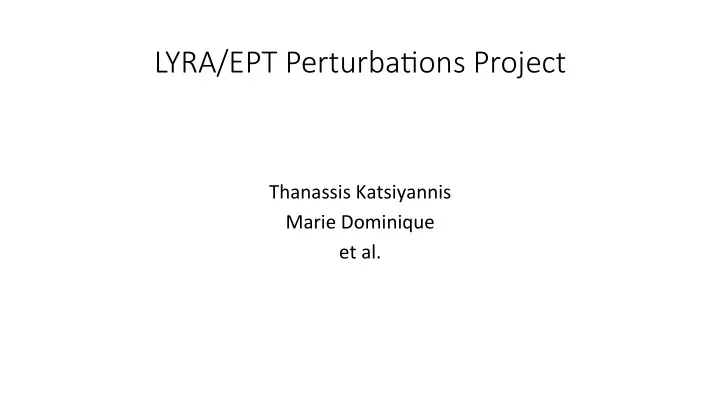

LYRA/EPT Perturba0ons Project Thanassis Katsiyannis Marie Dominique et al.
Detec0on Algorithm
Likelihood of detec0on VS Geomagne0c disturbance
McIlwain L-Shells
Detec0on Maps for LYRA and EPT
Differences between LYRA and EPT detec0ons
LYRA as in-situ electron detector • Although not designed as such, LYRA is clearly capable of detec@ng highly rela@vis@c electrons in situ • Whereas the electrons of the same energies can be detected by other instruments, LYRA has the highest cadence • Even if LYRA had no advantage on the observa@on of electrons, being able to detect in situ par@cles in an addi@onal orbit is very useful • Radiometers with thin metal filters will never replace dedicated in- situ instruments, but they are a cost effec@ve way to complement them
The PROBA-2 orbit • Heliosynchronous • Polar • Dawn-Dusk • 750 km al@tude • 100 min dura@on
The LYRA instrument Ly Hz Al Zr 120-123 nm 190-222 nm 17-80 nm + 6-20 nm + <5nm <2nm Unit1 MSM - diamond PIN- diamond MSM- diamond P-N Silicon Unit2 MSM- diamond PIN- diamond MSM- diamond MSM- diamond Unit3 P-N Silicon PIN- diamond P-N Silicon P-N Silicon
Recommend
More recommend